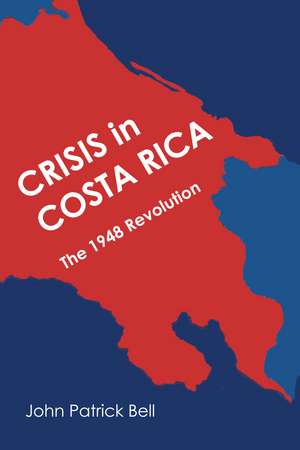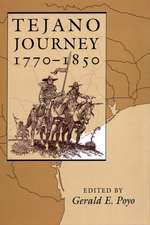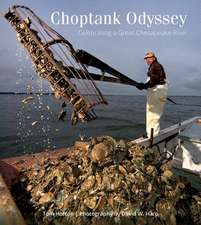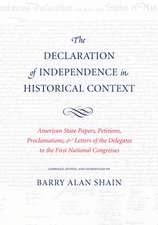Crisis in Costa Rica: The 1948 Revolution: LLILAS Latin American Monograph Series
Autor John Patrick Bellen Limba Engleză Paperback – 1971
In the 1940s the Communists, the Social Democrats (forerunners of the National Liberation Party), and the followers of Rafael Angel Calderón Guardia within the traditional National Republican party competed to lead the middle sector’s demand for modernization. Most accounts of this period have presented the Calderón regime as aristocratic or oligarchic in nature, yet as linked to an international Communist movement.
John Patrick Bell, supporting his argument with considerable detail and documentation from newspapers and private papers, argues that Calderón came to depend upon his alliance with the Communist-oriented Vanguardia Popular to counteract the defection of the right wing of the National Republican party and that the sources of the Vanguardia Popular were basically indigenous. The calderonistas’ comprehensive program for social and economic reform had elicited strong conservative reaction, and this opposition was ready to push the charge of communism against Calderón.
Costa Rica thus entered a period of violent political confrontation that culminated in the electoral victory of the conservative candidate, Otilio Ulate Blanco, in February 1948. When the calderonista majority in Congress annulled the election, José Figueres Ferrer launched a successful uprising purportedly to force ratification of Ulate’s election. In reality, however, Figueres had been planning a revolt for nearly six years to redirect modernization along social democratic lines.
Figueres and his group, seeking even more radical reforms than the calderonistas, were able to use the opposition movement to their advantage, simply because they were prepared, even with force, when the right moment arrived. The National Liberation Movement, led to power by Figueres, dominated the national political development of Costa Rica for decades afterward.
Eschewing a strictly chronological framework, Bell has utilized a topical structure that facilitates a full description of shifts in foreign policy in the United States and Latin America that affected the outcome of the struggle in Costa Rica.
Din seria LLILAS Latin American Monograph Series
-
 Preț: 338.33 lei
Preț: 338.33 lei -
 Preț: 123.28 lei
Preț: 123.28 lei -
 Preț: 166.47 lei
Preț: 166.47 lei -
 Preț: 203.36 lei
Preț: 203.36 lei -
 Preț: 225.50 lei
Preț: 225.50 lei -
 Preț: 203.36 lei
Preț: 203.36 lei -
 Preț: 262.40 lei
Preț: 262.40 lei -
 Preț: 166.47 lei
Preț: 166.47 lei -
 Preț: 203.73 lei
Preț: 203.73 lei -
 Preț: 203.36 lei
Preț: 203.36 lei -
 Preț: 240.63 lei
Preț: 240.63 lei -
 Preț: 203.36 lei
Preț: 203.36 lei -
 Preț: 203.36 lei
Preț: 203.36 lei -
 Preț: 203.36 lei
Preț: 203.36 lei -
 Preț: 203.36 lei
Preț: 203.36 lei -
 Preț: 299.28 lei
Preț: 299.28 lei -
 Preț: 203.36 lei
Preț: 203.36 lei -
 Preț: 277.16 lei
Preț: 277.16 lei -
 Preț: 203.36 lei
Preț: 203.36 lei -
 Preț: 203.73 lei
Preț: 203.73 lei -
 Preț: 203.36 lei
Preț: 203.36 lei -
 Preț: 166.47 lei
Preț: 166.47 lei -
 Preț: 203.36 lei
Preț: 203.36 lei -
 Preț: 232.88 lei
Preț: 232.88 lei -
 Preț: 225.50 lei
Preț: 225.50 lei -
 Preț: 166.47 lei
Preț: 166.47 lei -
 Preț: 203.36 lei
Preț: 203.36 lei -
 Preț: 240.26 lei
Preț: 240.26 lei -
 Preț: 277.16 lei
Preț: 277.16 lei -
 Preț: 277.16 lei
Preț: 277.16 lei -
 Preț: 277.16 lei
Preț: 277.16 lei -
 Preț: 203.36 lei
Preț: 203.36 lei -
 Preț: 203.36 lei
Preț: 203.36 lei -
 Preț: 240.26 lei
Preț: 240.26 lei -
 Preț: 203.36 lei
Preț: 203.36 lei -
 Preț: 232.29 lei
Preț: 232.29 lei -
 Preț: 166.47 lei
Preț: 166.47 lei -
 Preț: 232.88 lei
Preț: 232.88 lei -
 Preț: 203.36 lei
Preț: 203.36 lei -
 Preț: 240.26 lei
Preț: 240.26 lei -
 Preț: 200.26 lei
Preț: 200.26 lei -
 Preț: 262.40 lei
Preț: 262.40 lei -
 Preț: 166.47 lei
Preț: 166.47 lei -
 Preț: 225.50 lei
Preț: 225.50 lei -
 Preț: 203.73 lei
Preț: 203.73 lei -
 Preț: 166.47 lei
Preț: 166.47 lei -
 Preț: 223.94 lei
Preț: 223.94 lei -
 Preț: 241.38 lei
Preț: 241.38 lei -
 Preț: 299.28 lei
Preț: 299.28 lei
Preț: 160.48 lei
Nou
Puncte Express: 241
Preț estimativ în valută:
30.71€ • 31.79$ • 25.96£
30.71€ • 31.79$ • 25.96£
Carte tipărită la comandă
Livrare economică 05-19 martie
Preluare comenzi: 021 569.72.76
Specificații
ISBN-13: 9780292772588
ISBN-10: 0292772580
Pagini: 206
Dimensiuni: 152 x 229 x 28 mm
Greutate: 0.31 kg
Editura: University of Texas Press
Colecția University of Texas Press
Seria LLILAS Latin American Monograph Series
ISBN-10: 0292772580
Pagini: 206
Dimensiuni: 152 x 229 x 28 mm
Greutate: 0.31 kg
Editura: University of Texas Press
Colecția University of Texas Press
Seria LLILAS Latin American Monograph Series
Notă biografică
John Patrick Bell is Associate Professor Emeritus of History at Indiana University–Purdue University at Fort Wayne. He was with the United States Foreign Service for several years, working in Argentina and with the U.S.-Mexico Commission for Border Development. He has traveled widely throughout Latin America.
Cuprins
- Preface
- Chapter 1. Introduction and Background
- Chapter 2. The Social Question
- Chapter 3. The Issue of Communism
- Chapter 4. Fiscal Corruption and Mismanagement
- Chapter 5. Conspiracy, Rebellion, and the Second Republic
- Chapter 6. The Electoral Question
- Chapter 7. Revolution and Negotiated Peace
- Chapter 8. Epilogue
- Selected Bibliography
- Index
Descriere
This book analyzes the circumstances of 1940–1948 that led to a successful armed uprising, as well as the role of José Figueres Ferrer in marshaling disparate groups into a movement sufficiently cohesive to seize and hold power.









